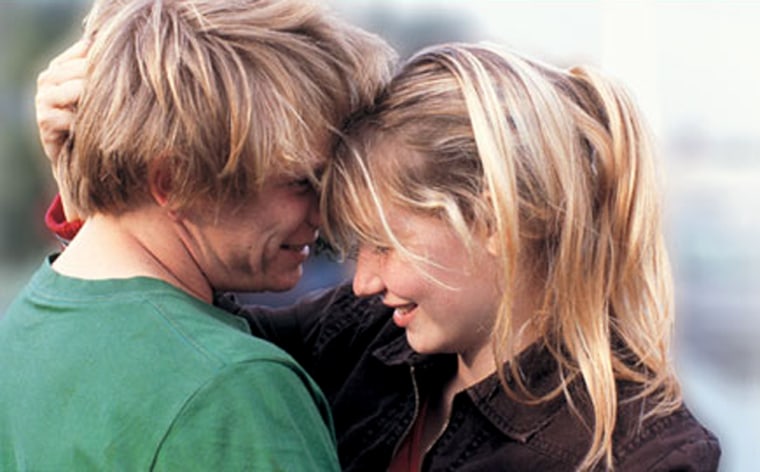The title of the latest film from brothers Jean-Pierre and Luc Dardenne — “L’Enfant” (“The Child”) — primarily refers to the infant born to a couple of young, restless Belgians, a baby boy who wasn’t expected and is only vaguely wanted.
But the real child in the film is the baby’s father, who reveals himself as irreparably immature and selfish at every opportunity.
Poor, desperate and wayward, Bruno (Jeremie Renier, star of the Dardennes’ 1996 film “La Promesse”) is practically pathological in his inability to say the right thing, to do the right thing. And because the writing-directing Dardennes have devised him this way, they’ve made it impossible to sympathize with him on any level — or care about what happens to him.
With the lean, blonde looks of a young Sting, Bruno would rather push baby Jimmy around in a carriage, using him as help in begging strangers for spare change, than wait in the welfare line with his girlfriend, Sonia (Deborah Francois in her film debut), who’d just given birth to the child nine days earlier.
He’d rather spend the little money he has on cigarettes and pinball, and he’d rather get up in the middle of the night to sell a stolen video camera than stay in the shelter with his new makeshift family. (Then again, Sonia is a child herself. Just 18, she’s given to play fighting with Bruno, biting his hand and smacking him about the head as they bicker over the radio station.)
In their trademark style, the Dardennes capture everything — from Bruno and Sonia’s adolescent outbursts to the most mundane moments of their daily lives — with hand-held, documentary-style camerawork, natural lighting and no musical soundtrack.
The result is an intimacy that can be startling in its confrontational closeness, and the approach is most effective when Bruno does the unthinkable. He arranges to give up Jimmy for adoption on the black market without asking or telling Sonia, just because he needs the money and — in his overly simplistic logic — because he’s convinced himself that doing so is crucial to his and Sonia’s survival.
We don’t see the transaction take place: We hear footsteps and a door opening and closing as the camera remains trained on Bruno leaning against a wall, listening to the same sounds we hear.
Presenting the exchange in such stripped-down fashion does create a certain amount of tension; you don’t even want to breathe for fear that someone in the audience will hear you. And yet it does nothing to humanize Bruno. His sale of the child, and the bumbling events that follow, only make him seem more despicable, and make you watch in frustration and wish that Sonia would extricate herself from him completely, and as quickly as possible.
But Bruno ultimately undergoes what the film’s production notes describe as a “powerful personal transformation.” For whatever reason, it gripped the jury of last year’s Cannes Film Festival, which awarded “The Child” with the Palme D’Or, the highest honor.
But in truth, his remorse rings hollow, his tears seem to spring from an insincere source. Bruno isn’t crying because he feels guilty and wants to change his ways. He’s crying because he got caught.
